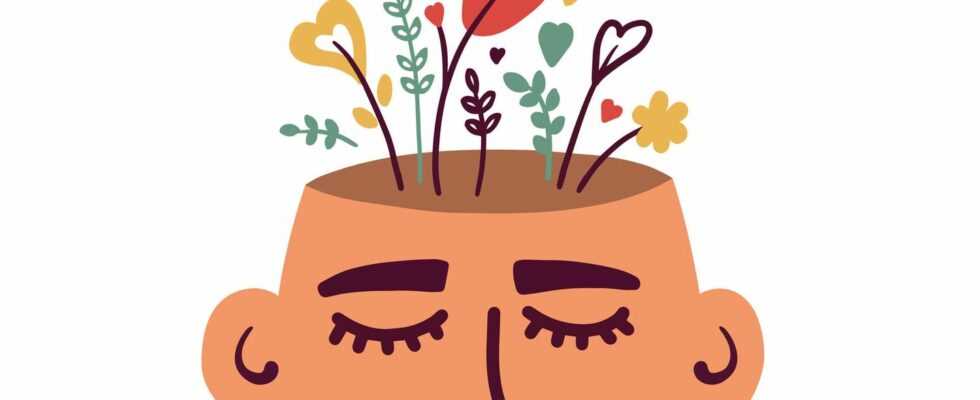Not only does our body deserve a little care every now and then, our psyche also deserves support – especially when the world gets into trouble again. These 8 mental wellness strategies may not straighten out life, but they do.
I desperately need a spa vacation! Totally accepted phrase. We naturally seek physical therapy when our backs hurt, take medication when we’re in pain, even rent health hotels and give our bodies a break when we’re stressed. And then talk freely and enthusiastically about it at work. Yes, we call in sick when our bodies complain. But not when our psyche screams.
It is completely natural that changes, be they external or internal, positive or negative, have an impact on the emotional world. It actually only becomes problematic when we ignore this fact – and at some point our psyche seeks its way through the body and causes us complaints. She doesn’t mean us any harm, she simply demands the attention she deserves. And now we’ll give it to her.
Get out for 24 hours
A sentence that is often said by therapists but is less well-liked by patients: If you notice that your psyche is affecting your physical well-being, take yourself out for 24 hours. This can become noticeable through difficulty concentrating, inner restlessness or rumination – no matter what it is, if we notice that something is psychologically stressing us, it is just as legitimate a reason to call in sick as if a virus is raging inside us. For those who are still stuck in the hamster wheel, the following comparison could help: We are far less likely to be absent due to illness if we take care of ourselves early on and take it easy than if we constantly exceed our mental limits and at some point can no longer do it at all.
not work
And these 24 hours are not there to do everything that is left undone. Rather, one can imagine the self-imposed wellness vacation for the psyche as a small break button. Take a look at what is really relevant (e.g. childcare) and whether it works without you. So put yourself and your everyday life on the back burner from time to time. This is easier said than done, but it is only possible under one premise that you practice wonderfully: be honest and ask for help.
Create a clean environment
Apart from the forced break, for some people cleaning the apartment is literally purifying. Muck out, clean up, vacuum. On the one hand, we are busy with our hands and not with our heads and can let our thoughts run free. On the other hand, it helps visual people in particular to feel tidier inside if their environment is tidy.
meditation walk
Meditation is mentioned in every relaxation guide, but there’s a reason for that: Just when you feel like you’re too restless for meditation, you’ll be surprised at how much it can do. If you still feel restless at first, try a meditation walk. You can listen to a meditation and consciously let your environment affect you. By the way, you can learn this mindfulness, so that over time you automatically get a better sense of the beautiful things in your surroundings.
For a to-do comes a to-enjoy
Especially when you feel overwhelmed, it can help to write down all the tasks. Then, before you delusionalize your to-do list, break it down. What is really important – and what can wait? Start with just one task per day. Now comes the trick: each to-do should be followed by a reward. Think about what you’re looking forward to that day in the morning. Individually, the to-dos usually seem less threatening, at the same time we can link them positively with this exercise.
Replace worst with best-case scenarios
Anyone who ponders a lot will know that we rarely imagine the happy ending. Why? The next time you catch yourself worrying about something and imagining the worst possible outcome, mentally picture a fork in the road. One side is blocked. Instead, there is another branch to the best possible ending. What would be the best thing that could happen? Through beautiful imaginations, we reprogram ourselves for optimism in the long term.
listening to classical music
Let’s move on to the external influences that can help. It is no coincidence that classical music is often played in doctor’s offices. Classic is now even used in the therapy of anxiety and depression. The sounds can help against stress, sleep disorders and even pain.
Bathing, sauna, sweating
Don’t worry, classic relaxation methods are not neglected in mental wellness either. Bathing, saunas and sweating is not only good for the body, but often also ensures that we feel more about ourselves and are completely with ourselves. This helps above all if you get lost in your own thought spirals and want to reconnect with reality through your body. At the same time, the warmth feels like a comforting hug – and in the steam sauna we leave the haze in our heads with us.
